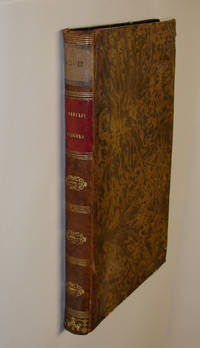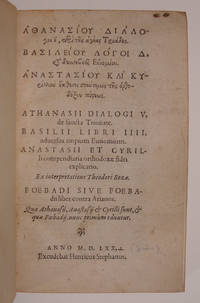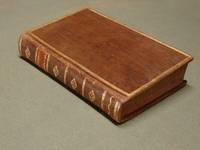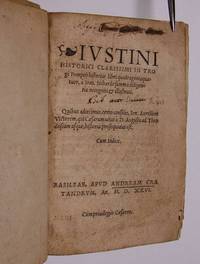
Demosthenis et Aeschinis Mutuae accusationes de ementita Legatione, et de Corona, ac contra Timarchum quinque numero, cum earum argumentis, ipsorum oratorum vita, et Aeschinis Epistola ad Athenienses, ac indice copioso. Nuper a bene docto viro traductae. Dictorum series versa pagina conintetur. Cum Privilegio Veneto.
de DEMOSTHENES & AESCHINES
- Usado
- Tapa dura
- Estado
- Ver descripción
- Librería
-
AMSTERDAM, Netherlands
Formas de pago aceptadas
Sobre este artículo
Reseñas
(¡Iniciar sesión or Crear una cuenta primero!)
Detalles
- Librería
- Antiquariaat Fragmenta Selecta
(NL)
- Inventario del vendedor #
- 120062
- Título
- Demosthenis et Aeschinis Mutuae accusationes de ementita Legatione, et de Corona, ac contra Timarchum quinque numero, cum earum argumentis, ipsorum oratorum vita, et Aeschinis Epistola ad Athenienses, ac indice copioso. Nuper a bene docto viro traductae. Dictorum series versa pagina conintetur. Cum Privilegio Veneto.
- Autor
- DEMOSTHENES & AESCHINES
- Estado del libro
- Usado
- Encuadernación
- Tapa dura
- Palabras clave
- (Oude Druk) (Rare Books) Aeschines Aischines Athen Athens De Corona Demosthenes Greek history Greek literature Griechische Literatur Latin translation only Macedonia Philippicae Philippus antike altertum antiquity griechische Geschichte
- Catálogos del vendedor
- Old and Rare books;
Términos de venta
Antiquariaat Fragmenta Selecta
Books may be returned for any reason within 14 days of receipt. The book price will be refunded, if the book is returned in the same condition as sent, and packed, shipped and insured as received. A full refund including shipping costs will follow only if an item arrives misdescribed or damaged. Shipping estimates are based on books weighing 4.4 LB or 2 KG. If your book order is heavy or oversized, we will email you to let you know that extra shipping is required. All books are in good antiquarian condition, unless otherwise described. Items offered are subject to prior sale.
Sobre el vendedor
Antiquariaat Fragmenta Selecta
Sobre Antiquariaat Fragmenta Selecta
Glosario
Algunos términos que podrían usarse en esta descripción incluyen:
- Leaves
- Very generally, "leaves" refers to the pages of a book, as in the common phrase, "loose-leaf pages." A leaf is a single sheet...
- Vellum
- Vellum is a sheet of specialty prepared skin of lamb, calf, or goat kid used for binding a book or for printing and writing. ...
- Verso
- The page bound on the left side of a book, opposite to the recto page.
- Soiled
- Generally refers to minor discoloration or staining.
Categorías de este libro
Also Recommended
-

¡Ahorra un 10% en cada compra!
Únete al Biblioclub y empieza a ahorrar un 10% enn todas tus compras.
$29.95 / Año







